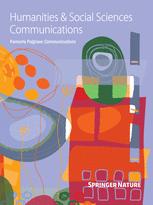Key messages
- Many countries have adopted the Restoration Opportunities Assessment Methodology (ROAM) to guide the development of national and subnational restoration strategies.
- This study analyzes ROAM reports for eight countries to determine the extent to which tenure and related governance considerations were incorporated.
- Although all of the reports found that lack of rights or weak rights impeded efforts to scale up forest landscape restoration (FLR), none provided robust descriptions of the rights and responsibilities of individuals or communities to trees, forests or land under statutory or customary law.
- We propose a rights actualization framework as a diagnostic that can provide a solid foundation to identify policy reforms needed to address rights-related barriers to FLR implementation.
- FLR initiatives informed by a robust tenure rights assessment will enhance the likelihood of achieving their twin goals of improving ecological functionality and human well-being.
Download:
DOI:
https://doi.org/10.17528/cifor/007132Altmetric score:
Dimensions Citation Count:
Publication year
2019
Authors
McLain, R.; Lawry, S.; Guariguata, M.R.; Reed, J.
Language
English
Keywords
degraded land, tenure, policy, land management, ecological restoration, livelihoods, forest rehabilitation























